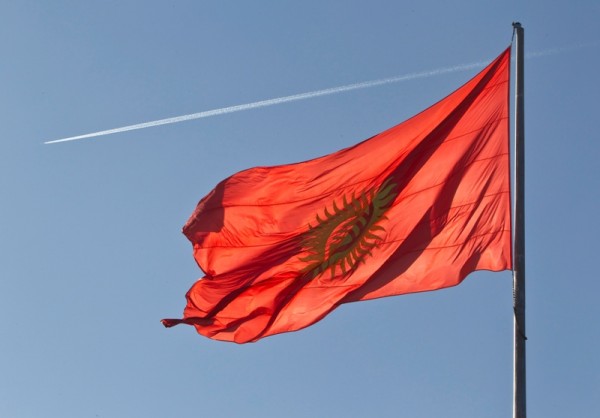To mark World Press Freedom Day 2022, IPI’s media partners in the South Asia Cross-border journalism project in Bangladesh, India, Pakistan and Nepal have documented several press freedom violations in their countries. These stories are published in all the five news publications – The Daily Star, The Week, Dawn, Republica and Nagarik.
The Public Safety Act, which was enacted in 1978 to deter timber smuggling, has been a widely used and abused law in Jammu and Kashmir. People in power have used it against their political rivals, as well as separatists and their supporters. After August 5, 2019, when Jammu and Kashmir lost its statehood and limited autonomy under Article 370 of the Constitution, the Public Safety Act was invoked to detain three former chief ministers, Farooq Abdullah and Omar Abdullah of the National Conference and Mehbooba Mufti of the Peoples Democratic Party. They were released many months later, after a petition in the Supreme Court.
The Public Safety Act is preventive in nature but punitive in reality because a person can be detained under it for six months to two years without trial. It can be invoked against anyone by an order passed either by the divisional commissioner or by the district magistrate. It is quite different from a detention order issued by the police based on specific allegations of violation of laws. The reason for the detention is given in writing to the detainee within five days, or ten days in exceptional circumstances, so that the detained person gets an opportunity to contest the order, but that hardly helps.
According to reports, more than 500 people are currently detained under the Public Safety Act, and 150 of them were arrested in March and April this year. Many detainees are lodged in jails outside Jammu and Kashmir, because of overcrowding in jails in the Union Territory.
After reading down Article 370, the Public Safety Act has also been used against three journalists, Aasif Sultan, Sajad Gul and Fahad Shah. Sultan, 34, was slapped with the Public Safety Act soon after a court granted him bail, after four years in jail, in a case of “harbouring militancy’’.
As assistant editor at the Srinagar-based magazine Kashmir Narrator, Sultan had written an article in July 2018 about Burhan Wani, a leader of the militant organisation Hizbul Mujahideen who was killed by the security forces in July 2016. The article argued that Wani had become more dangerous to the government after his killing than when he was alive. A month after the publication of the article, Sultan was arrested under the Unlawful Activities (Prevention) Act on a charge of “harbouring militancy”. The police accused him of promoting terrorism and an anti-India narrative.
On his arrest, a photograph of Sultan in fetters and in a T-shirt with the words ‘Journalism is not a Crime’ became a ringing theme on social media. In August 2019, while he was in jail, the John Aubuchon Press Freedom Award was conferred on him in Washington, DC.
In April 2022, four years after the arrest, a special court of the National Investigation Agency granted him bail. His lawyer Adil Abdullah said it was a fake case. “After we recorded the statements of the witnesses, the court concluded that there was no prima facie evidence for which Sultan can be kept in jail and granted him bail,’’ Abdullah said.
But, before Sultan could step out of jail, “he was detained again by other agencies and shifted to an undisclosed location,” said Abdullah. “Four days later, he was handed over to the concerned police station and slapped with the Public Safety Act. Now we learn that he is in a jail in Uttar Pradesh,’’ he said.
Sultan’s case has emerged in many lists compiled by media groups showing how media persons are facing the threat of persecution in Kashmir.
Sajad Gul, a trainee reporter at the online news magazine The Kashmir Walla, was arrested under the Public Safety Act on January 5 for using social media to “provoke people against the government, despite being educated”. The police dossier against him says, “You have always made/tweeted controversial statements on social media and being a journalist, you are less reporting about the welfare of UT rather than enmity.’’ The dossier accuses him of uploading a video on social media highlighting anti-national slogans raised by people in the house of a slain militant.
Fahad Shah, the 34-year-old editor-in-chief The Kashmir Walla, was first detained by police on February 4 under the Unlawful Activities (Prevention) Act for reporting events at a gunfight and granted bail after 22 days. He was re-arrested in a case that had been registered against his magazine in January 2021. He secured a bail on March 5 but was again arrested hours later in a two-year-old case and slapped with the Public Safety Act for “glorifying terrorism, spreading fake news and inciting general public for creating law and order situations.”
Life for journalists in Kashmir has always been difficult because of the prolonged conflict in the valley. However, after August 5, 2019, journalists have come under increased scrutiny and pressure from the government. A fact-finding committee of the Press Council of India has found that the “news media in the Jammu and Kashmir region, and especially in the valley, is slowly being choked mainly because of the extensive curbs imposed by the local administration.” The committee mentioned that “the media also faces a threat of violence by the militants, which acts as a deterrent”. According to the committee, “normal lines of communication between the local government administration and journalists have been disrupted” because of the government’s “suspicion that many local journalists are sympathisers of the militants’ cause.”
This editorial was originally published by The Week.



